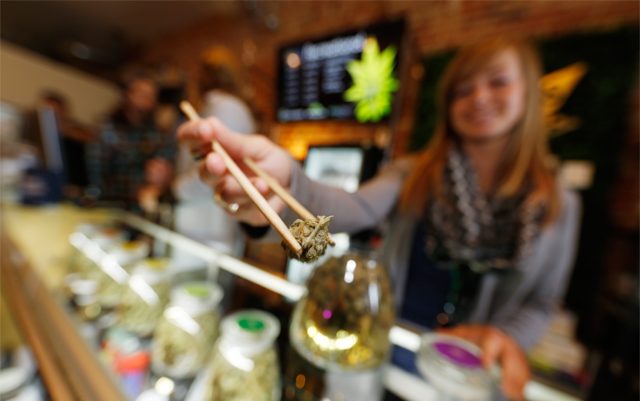Earlier this year Vermont became the first state in the U.S. to legalize recreational marijuana via the state legislature. Yet, while possession and home growing by adults was made legal, a structure for retail cannabis sales was pushed off in the form of a commission to discuss the issue.
Now the commission is nearing the end of its mission and is supposed to issue a report on sales options by December 15th. A subcommittee of the state’s Marijuana Advisory Commission recently released a list of recommendations which covered legal edible sales, licensing, advertising restrictions and taxes.
“The Subcommittee recommends creating a tax structure that will, at a minimum, maintain a revenue-neutral balance sheet for the State,” it says in the Executive Summary of the preliminary report. “Retail sales of marijuana should be subject to a new 20% excise tax and the existing 6% sales tax. By imposing the State sales tax, the 1% local option sales tax will automatically apply in jurisdictions that have adopted such a tax.”
A 20% excise tax puts Vermont’s marijuana tax rate considerably above the tax rate in neighboring legalization state Massachusetts. This is obviously an attempt to generate extra revenue for the state, but as I’ve written before, higher tax rates don’t necessarily mean higher revenues. If the tax rate makes the price of retail marijuana high enough to entice people to stay with the black market – or drive to neighboring MA – then that’s what most consumers will do.
Driving consumers out of the market will result in less tax revenue, no matter how high you set the tax rate.
To be fair, it’s hard to know how to strike that balance between wanting to generate revenue as a lawmaker and still help keep prices low enough that those who are collecting the taxes are able to compete with a massive and entrenched black market. But if your goal is to allow a legal market to get off the ground, it’s better to err on the side of a lower rate now and worry about raising it instead of setting the rate too high, hamstringing the industry and having to bring the rate down later, when it may be too late for many businesses to survive.
It’s hard to know what effect a 20% tax rate will have on legal sales in Vermont, but adding a 20% markup on the price of a product that will likely be scarce and expensive to begin with will probably not help, especially considering the biggest competition to the market pays no tax rate at all.






